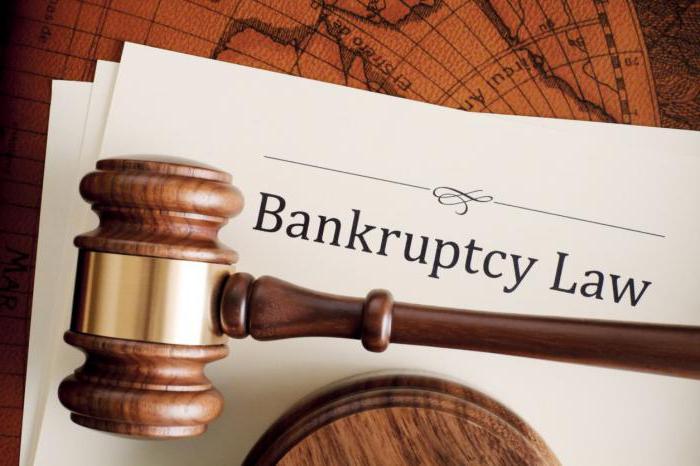The procedure in which a citizen is declared insolvent is characterized by a large number of features and nuances. Recently, the issue of possible contestation of transactions made by the alleged bankrupt has been highly relevant. In practice, there are many stories of contesting the transactions of a debtor in bankruptcy. So, what kind of algorithm of actions must be observed in this situation and what you need to know about the procedure in order to successfully implement it?
Legal grounds
The bankruptcy procedure for individuals is regulated by law 154, adopted on June 29, 2015. The need to adopt new rules that regulate financial relations was predetermined by the frequent situations of inability to fulfill obligations assumed. In view of this bankruptcy law, contesting transactions of a debtor makes it possible to comply with the interests of the creditor. It is allowed to dispute an individual’s transactions only after a citizen is officially declared bankrupt on such grounds as:
- the amount of his financial obligations impossible to fulfill exceeds five hundred thousand rubles;
- non-fulfillment by an individual of more than three months of the conditions for repayment of debt;
- Loan or loan payments were past due.
What objects do not need a challenge?
Separately, each of the conditions described above is not able to act as the reason for assigning a bankrupt status to an individual. It does not mean the cancellation of the aggregate debts, but determines the right of priority issue of accumulated debt to creditors. This happens after the sale of property owned by the debtor. Only after this financial obligations are canceled, regardless of how much debt remains. In judicial practice on contesting a debtor’s transactions in bankruptcy, a large number of illustrative examples are absent, since the term of the bankruptcy law is short. The restructuring does not include such types of property as:
- Housing - an apartment, house or a piece of land, however, in the case when this immovable property is the only one;
- household items and personal items, which include clothing, shoes, etc .;
- the professional tool that is required to carry out the work, the only exception is its cost is higher than one hundred minimum wages;
- economic buildings, provided that they are not included in the technical passport of the site, apartment or house.
For these facilities, it is not possible to dispute the debtor's transactions in bankruptcy. To determine the feasibility of selling a particular type of property, a financial attorney must be appointed, who monitors the auction process, is able to regulate the prices of the real estate being sold or things in accordance with the market conditions. Challenging transactions is the direct responsibility of the financial manager. It is quite problematic to challenge the debtor’s transaction in the event of a bankruptcy of an individual, especially when the transaction was completed more than a year ago. To challenge the deal, you need to prove that it was committed with the aim of harming creditors, and this is very difficult. The consequences of contesting a debtor’s transactions in bankruptcy are also difficult to predict.
Criteria for doubt
The following criteria can cast doubt on the deal:
- the transfer of property was made between close relatives;
- underestimated contract price;
- the transaction worsened the financial condition of the debtor;
- by the time of the transaction, the debtor was already insolvent;
- the transferred property is not included in the list of those things that cannot be levied.
Why is knowing the date important?
To determine the prospects of contesting the transactions of the debtor in bankruptcy in a particular case, it is very important to know the date of its commission. So, for individuals, such a date as October 1, 2015 is of great importance. Just on that day, the provision on the bankruptcy of citizens took effect.
If the transactions were made by a citizen who is not an individual entrepreneur before October 1, 2015, then they cannot be subjected to a process, which is determined by the norms of the third chapter of the Federal Law “On Bankruptcy”. Challenging the transaction of the debtor in this case may be inappropriate. So, if a transaction is completed before this date and the citizen was not an individual entrepreneur, then in principle it is not worth contesting such a transaction. If the transactions were concluded by the debtor one year before the bankruptcy petition was accepted, then they may be invalidated if there are significant differences between the transaction price and the average market price.
What can be challenged?
Here are some types of transactions with the possibility of challenging them:
- sales contracts;
- gift agreements;
- payment of fees and taxes;
- a prenuptial agreement, as well as an agreement on the division of joint property of husband and wife;
- banking operations, including also writing off money from the client’s bank account to repay his debt to the bank or other persons;
- actions to implement the court act, including the determination to establish a settlement agreement and the settlement agreement itself;
- for individual entrepreneurs - payment of wages, including bonuses.
As part of the process of contesting transactions of a debtor in a bankruptcy case, transactions made with sole housing cannot be challenged. The Federal Law “On Insolvency (Bankruptcy)” will answer any questions regarding this topic.
Each transaction, as well as the circumstances of its execution, in any case, needs to be carefully analyzed. Entrusting a detailed study of the possibility of contesting a debtor’s transaction in bankruptcy is desirable for specialists.
Statutes of limitations
Prior to the beginning of the process of challenging the transaction of the debtor in bankruptcy, it is necessary to clarify the verification of the time of its completion. The limitation periods for such cases are stipulated in law 154. The standards of the tenth article of the Civil Code of the Russian Federation can also be applied. Under sales contracts, the following limitation periods:
- three years when executed before September 1, 2013;
- ten years for transactions completed after the above period.
If an individual did not have IP status, then in accordance with the third article of the Law on Insolvency, those contracts that were drawn up before October 1, 2015 are not subject to challenge. However, this is possible only when the norms of the tenth article of the Civil Code of the Russian Federation cannot be applied to a certain situation. On whether these rules can be applied to a specific transaction, the decision is made by a financial attorney or a court. If controversial situations arise during the examination of the ability to dispute, then each of the parties has the right to initiate an additional process in court. However, it must be remembered that in the event of a negative decision, the aggregate of the costs of paying the state duty and the examination will be the responsibility of the plaintiff.
We remind once again that under the purchase and sale agreements, the limitation period for registration before September 1, 2013 is 3 years before the debtor’s transaction is disputed in bankruptcy, otherwise 10 years.
What are the ways to challenge transactions?
In practice, the relationship between the creditors and the debtor suggests several ways out of the conflict situation.It must be remembered that the status of a bankrupt is assigned to an individual at the same time as he has lost many opportunities, for example, obtaining benefits from the state, obtaining a loan, etc. That is why it is necessary to try to resolve financial problems without starting this procedure. Lenders have the right to use existing mechanisms to challenge transactions.
Criteria for disputes
The executed contracts must comply with the conditions:
- not exceeded limitation period;
- there is an infringement of the creditor when registering a transaction;
- the subject of the contract of sale is not among the inviolable ones.
On joint property, transactions are disputed exclusively in a judicial proceeding. Conflict situations mainly arise due to the difficulty of establishing a single owner of the object in question. Judicial practice of disputing a debtor’s transactions in bankruptcy can confirm these statistics.
Pretrial claim
In order to quickly resolve a conflict situation, it is allowed to draw up a pre-trial claim, filed either in the name of the debtor or his finance attorney. This practice makes it possible to save time and reduce the costs of litigation. The judicial claim is composed as follows:
- writing a statement indicating the nature of the claim;
- a description of the transaction to be canceled, as well as the reasons for such a decision.
It is very important to specify that during the conclusion of the contract mistakes were made that contradict the current legislation. A claim is filed either to the debtor or to the financial agent.
As a result of negotiations, the attorney is able to influence the procedure for satisfying financial claims in favor of their applicant. Also attached are copies of those documents that confirm the fact of the transaction. An official response to a pre-trial claim must be submitted no later than a month after its receipt. An individual (debtor) or his financial agent should either offer alternative solutions to the situation, or agree with the requirements. Then, actions are taken that annul the illegal transaction of the individual.
Filing a lawsuit
In the case when it is not possible to resolve the issue before the court, you need to send the documentation to the district court. It is necessary to prove that the transaction concluded earlier caused harm to the creditor, and it must be canceled. To do this, prepare documents that confirm the fact of purchase (gift, sale), - an act on the state of the debtor's finances during the transaction, a copy of the agreement. It is advisable to file a claim in the framework of this bankruptcy case. If the creditor is not indicated in the official lists of debts, then he will not be able to be an applicant for the property of the debtor after a court decision. The court requires documents such as:
- A statement of claim drawn up with the help of a qualified lawyer. It describes the reasons for canceling a transaction completed earlier.
- A copy of the pre-trial claim. The official response of the debtor must be attached.
- Documents that confirm claims of a financial nature to a potential bankrupt - debt receipts, contracts.
- A copy of the state duty payment receipt.
Within a month after filing a lawsuit, the first meeting must be held. When considered as part of a bankruptcy process, it may go earlier.
Settlement agreement
Often there are situations in which during the trial an agreement is reached between the parties regarding the claim. To fix this fact officially, you need to draw up a settlement agreement. First you need to file a petition. If the court gives a positive answer, then a settlement agreement to challenge the transactions of an individual requires compliance with such requirements as:
- mutual consent to conciliation;
- the agreement describes all the circumstances and methods of settlement;
- A copy of the agreement must be submitted to the court with a record in the journal of the meeting.
The court renders a verdict based on agreement. If the conditions of one of the parties are not fulfilled, the court decision can be challenged. The answer to such cases should be provided no later than fifteen business days.
